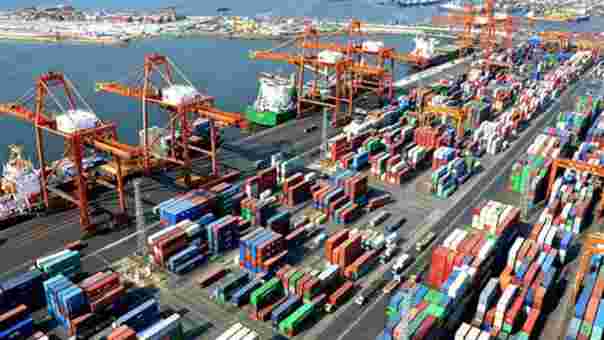Karachi, December 18, 2024 – The Port Qasim Authority (PQA) has issued an update on the shipping operations for Wednesday, December 18, 2024, outlining active maritime activity at the port.
Over the past 24 hours, four ships were berthed at various terminals within Port Qasim, handling a variety of cargo. These include Maersk Hartford, MSC Positano, Saga, and Al-Areesh, which are carrying containerized cargo, palm oil, and LNG. These ships docked at the Qasim International Container Terminal, the Liquid Cargo Terminal, and the Port Gas Terminal, respectively.
In addition to these berthing operations, three other ships—Blue Moon, Energy Centaur, and Venus—arrived at the outer anchorage. These vessels are scheduled to load and offload furnace oil, gas oil, and LPG.
A total of twelve ships were engaged at PQA berths during the last 24 hours, with two ships, Al-Diab-II and Al-Deebel, departing from the port this morning. Meanwhile, four ships, including Maersk Hartford, MSC Positano, Kouros Queen, and Hafnia Excellence, are expected to set sail later today, in the afternoon.
The port has handled a substantial cargo volume in the past 24 hours, totaling 220,628 tonnes. Of this, 165,405 tonnes were import cargo, while 55,223 tonnes were export cargo, carried across 5,546 containers (comprising 3,561 TEUs for imports and 1,985 TEUs for exports).
Currently, 26 ships are anchored at the outer anchorage of Port Qasim. Among these, four vessels—Atilla, Renad, Venus, and Maya Gas—along with two additional ships, Maersk Cape Town and Lotus-A, are expected to dock today to load and offload iron ore, gas oil, LPG, and containers at various terminals, including MW-1, FOTCO, EVTL, SSGC, and QICT. Moreover, two more ships, Tubul and One Recommendation, are expected to arrive at the outer anchorage shortly.
These ongoing operations highlight the steady flow of trade at Port Qasim, with various vessels contributing to Pakistan’s import and export activities. The port remains a crucial hub for handling diverse cargo types, supporting both the national economy and international trade activities.
